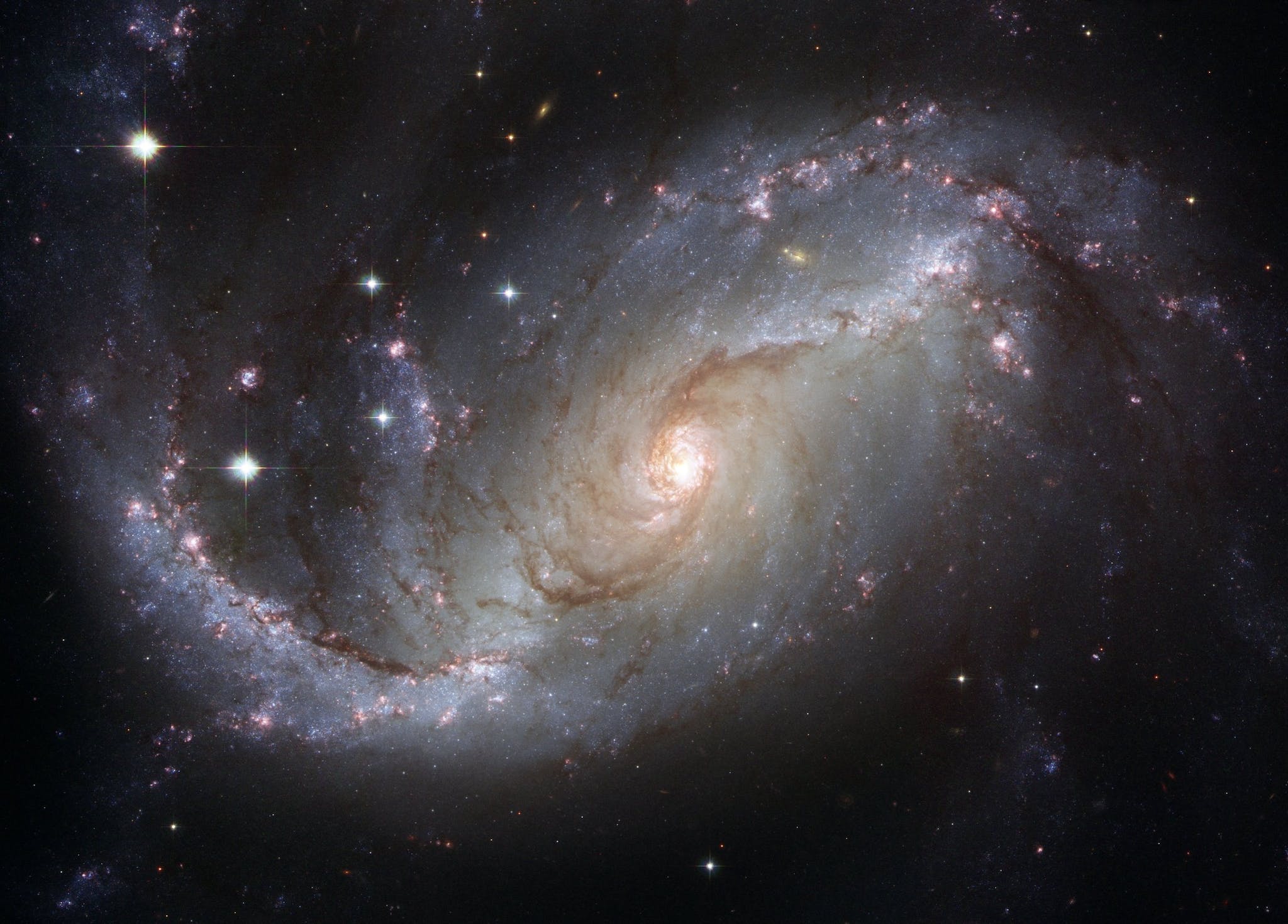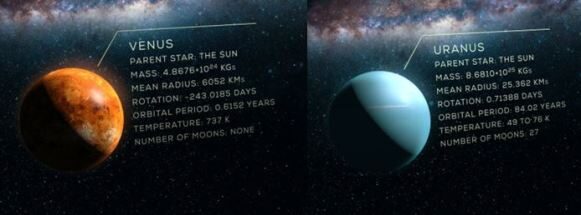How is cosmology different from astronomy?
Cosmology and astronomy are two distinct disciplines within the study of space, each focusing on different aspects of the universe. Cosmology delves into the origins and development of the universe, exploring concepts like the Big Bang and the eternal expansion of space. On the other hand, astronomy is concerned with the observation and description of celestial bodies such as stars, planets, and galaxies. While both fields are rooted in the study of space, they approach it from different angles and have their own unique areas of focus.
Key Takeaways:
- Cosmology and astronomy are scientific fields that study the universe, but with different focuses.
- Cosmology explores the origins and development of the universe, including the Big Bang theory and the expansion of space.
- Astronomy, on the other hand, involves the observation and description of celestial bodies like stars, planets, and galaxies.
- Cosmologists rely on data from astronomers to gain insights into the universe’s origins and evolution.
- Astrophysics is a subfield of astronomy that analyzes the physics of space, while cosmology investigates the broader aspects of the universe’s origin and development.
The Principles of Cosmology and Astronomy
Cosmology and astronomy are based on different principles, with cosmology examining the origins and development of the universe, and astronomy focusing on the observation and description of celestial bodies. Cosmology delves into the fundamental questions about the universe, such as how it began, how it has evolved over time, and what its ultimate fate may be. This field of study seeks to understand the large-scale structure of the universe, including the distribution of matter and energy, the formation of galaxies and star systems, and the dynamics of cosmic expansion.
Astronomy, on the other hand, is primarily concerned with studying individual celestial objects and their characteristics. Astronomers use various observational techniques and technologies to observe stars, planets, galaxies, and other celestial phenomena. Through these observations, astronomers gather data on the positions, motions, compositions, and properties of these objects, helping to expand our knowledge of the universe and its vast array of components.
A key principle in cosmology is the application of the laws of physics to the study of the universe. Cosmologists use mathematical models and simulations to explore the behavior of matter and energy on cosmic scales, enabling them to develop theories and hypotheses about the origins and evolution of the universe. The principles of cosmology are deeply rooted in our understanding of fundamental physics, including concepts such as general relativity, quantum mechanics, and the nature of dark matter and dark energy.
As for astronomy, one of its guiding principles is the use of observational data to inform scientific inquiry. Astronomers rely on precise measurements and careful observations to gather information about celestial objects. They employ telescopes, spectrographs, and other instruments to analyze the light emitted or reflected by these objects, which reveals valuable details about their composition, temperature, distance, and other properties. The data obtained by astronomers serve as the building blocks for our understanding of the cosmos and play a vital role in advancing both cosmology and astronomy.
Comparing the Principles
| Cosmology | Astronomy |
|---|---|
| Examines the origins and development of the universe | Focuses on the observation and description of celestial bodies |
| Uses mathematical models and simulations to understand the behavior of matter and energy on a cosmic scale | Relies on observational data to gather information about the properties and characteristics of celestial objects |
| Explores concepts like general relativity, quantum mechanics, dark matter, and dark energy | Utilizes telescopes, spectrographs, and other instruments to analyze the light emitted or reflected by celestial objects |
Study Areas in Cosmology and Astronomy
Cosmology and astronomy encompass diverse study areas, with cosmology investigating the Big Bang theory and the ongoing expansion of the universe, while astronomy delves into the exploration of stars, planets, and galaxies. In cosmology, scientists seek to understand the origins and evolution of the universe as a whole. They study the cosmic microwave background radiation, which is the residual heat left over from the Big Bang. This radiation provides valuable insights into the early stages of the universe’s development.
Astronomy, on the other hand, focuses on the individual celestial bodies within the universe. Astronomers study stars, which are gigantic balls of gas that emit light and heat. They investigate the life cycles of stars, from their birth in nebulas to their eventual death as supernovas or white dwarfs. Astronomers also explore the properties of planets, including their composition, atmosphere, and potential for supporting life. Additionally, they study galaxies, which are vast collections of stars, gas, and dust held together by gravity.
Subfields within Cosmology and Astronomy
Within cosmology, there are several subfields that further specialize the study areas. For example, theoretical cosmologists develop mathematical models and simulations to explain the behavior and evolution of the universe. Observational cosmologists collect and analyze data from telescopes and other instruments to test and refine our understanding of the universe. In addition, there are also subfields like physical cosmology, which focuses on the large-scale structure and dynamics of the universe, and cosmic inflation, which explores the rapid expansion of the universe in its early stages.
Similarly, within astronomy, there are various subfields that allow for a deeper exploration of specific study areas. Planetary astronomers focus specifically on the study of planets, their moons, and other objects within our solar system. Stellar astronomers concentrate on the observation and analysis of individual stars, including their formation, structure, and evolution. Galactic astronomers study the properties and dynamics of galaxies, while extragalactic astronomers extend their observations to galaxies beyond our own Milky Way. Each subfield contributes to our overall understanding of the universe and provides valuable insights into its vast complexity.
| Study Areas in Cosmology | Study Areas in Astronomy |
|---|---|
|
|
The Role of Astronomers in Cosmology
Astronomers play a crucial role in cosmology, providing observational data that cosmologists use to gain insights into the origins and evolution of the universe. Through their meticulous observations and measurements, astronomers contribute valuable information that helps shape our understanding of the cosmos.
With their advanced telescopes and instruments, astronomers are able to detect and analyze the light emitted by celestial bodies. This data includes the composition, temperature, and movement of stars, galaxies, and other cosmic objects. By studying the light’s spectrum and characteristics, astronomers can determine the distance of these objects from Earth and estimate their ages, sizes, and other essential properties.
In addition to collecting observational data, astronomers also collaborate with cosmologists to test and refine theories about the universe. Cosmologists rely on astronomers to confirm or challenge their hypotheses by providing empirical evidence. This partnership between the two fields strengthens the scientific foundation of cosmology, ensuring that our understanding of the universe is built upon credible observations.
Astronomical Discoveries: Table
| Date | Discovery |
|---|---|
| 1915 | General Theory of Relativity |
| 1929 | Hubble’s Law: Expansion of the Universe |
| 1964 | Discovery of Cosmic Microwave Background Radiation |
| 1998 | Accelerating Expansion of the Universe |
The collaborative efforts between astronomers and cosmologists have led to groundbreaking discoveries throughout history. From Albert Einstein’s General Theory of Relativity to the discovery of the accelerating expansion of the universe, these achievements have shaped our understanding of the cosmos and propelled scientific progress forward.
In conclusion, astronomers play a pivotal role in cosmology by providing crucial observational data that allows cosmologists to explore the origins and evolution of the universe. Their expertise, coupled with advanced telescopes and instruments, enables them to unravel the mysteries of the cosmos and contribute to our ever-expanding knowledge of the universe.
The Relationship between Astrophysics and Cosmology
Astrophysics and cosmology are closely related, with astrophysics serving as a subfield of astronomy that explores the underlying physics of space, and cosmology delving into the broader aspects of the universe’s origin, expansion, and development. While astronomy focuses on the observation and description of celestial bodies, astrophysics and cosmology seek to unravel the mysteries of the universe itself.
In astrophysics, scientists study the physical properties and processes that shape the cosmos. They investigate phenomena such as stellar evolution, the formation of galaxies, and the behavior of black holes. By analyzing the laws of physics, astrophysicists aim to understand the forces that govern the universe and the interactions between matter and energy. Through their research, they contribute to our understanding of the fundamental principles that govern the cosmos.
On the other hand, cosmology takes a broader perspective, examining the universe as a whole. Cosmologists seek to answer fundamental questions about the universe’s origin, its composition, and its ultimate fate. They explore theories such as the Big Bang, the expansion of the universe, and the existence of dark matter and dark energy. Through mathematical models and observations, cosmologists strive to piece together the puzzle of our cosmic origins and shed light on the mysteries that still elude us.
The Interplay between Astrophysics and Cosmology
The relationship between astrophysics and cosmology is symbiotic. Astrophysics provides the theoretical framework and tools necessary to understand the intricate workings of the universe, while cosmology offers astrophysicists a broader perspective for their research. Observational data gathered by astronomers fuel both fields, allowing scientists to test and refine their theories. By combining observations of celestial objects with theoretical models, astrophysicists and cosmologists can further our understanding of the universe and its evolution.
In conclusion, astrophysics and cosmology are intertwined scientific disciplines that complement each other in exploring the mysteries of the universe. While astrophysics focuses on the physics of celestial bodies, cosmology takes a more expansive view, seeking to unravel the origins and structure of the universe itself. Together, these fields contribute to our ever-growing knowledge of the cosmos and continue to inspire awe and wonder in the face of the vastness of space.
| Astrophysics | Cosmology |
|---|---|
| Focuses on the physics of celestial bodies | Explores the broader aspects of the universe |
| Investigates stellar evolution, galaxy formation, and black holes | Examines the origins, composition, and fate of the universe |
| Contributes to our understanding of the fundamental principles that govern the cosmos | Sheds light on the mysteries of our cosmic origins |
Conclusion
In conclusion, cosmology and astronomy are distinct scientific fields with cosmology concentrating on the origins and development of the universe, while astronomy revolves around the observation and description of celestial bodies. Cosmologists delve into the fundamental principles of the universe, seeking to understand how it began with events like the Big Bang and how it has evolved over time with the eternal expansion.
A crucial aspect of cosmology is the reliance on astronomers, who provide the observational data that cosmologists use to analyze and interpret the universe. Astronomers use various techniques to observe and describe celestial bodies such as stars, planets, and galaxies, contributing invaluable information to our understanding of the cosmos.
Astrophysics, as a subfield of astronomy, delves even deeper into the nature and evolution of the universe. It seeks to explain the processes that shape the universe, focusing on the physics of space. While astronomy primarily concerns itself with the positions and movements of celestial objects, astrophysics and cosmology explore the broader aspects of the universe as a whole.
By combining the efforts of cosmologists, astronomers, and astrophysicists, we continue to uncover the mysteries of the universe, gaining valuable insights into its origins, development, and future. The distinct but interconnected nature of cosmology and astronomy allows us to explore and expand our knowledge of the vast and awe-inspiring cosmos we inhabit.
FAQ
How is cosmology different from astronomy?
Cosmology focuses on the origins and development of the universe, while astronomy is concerned with the observation and description of celestial bodies.
What are the principles of cosmology and astronomy?
Cosmology explores the origins and development of the universe, while astronomy observes and describes celestial bodies.
What are the study areas in cosmology and astronomy?
Cosmology investigates the Big Bang theory and the expansion of the universe, while astronomy covers topics such as stars, planets, and galaxies.
What is the role of astronomers in cosmology?
Astronomers provide observational data that cosmologists rely on to understand the universe’s origins and evolution.
How are astrophysics and cosmology related?
Astrophysics is a subfield of astronomy focused on analyzing the physics of space, while cosmology investigates the broader aspects of the universe’s origin, expansion, and development.
What is the conclusion regarding the distinction between cosmology and astronomy?
Cosmology focuses on the origins and development of the universe, while astronomy involves the observation and description of celestial bodies.






